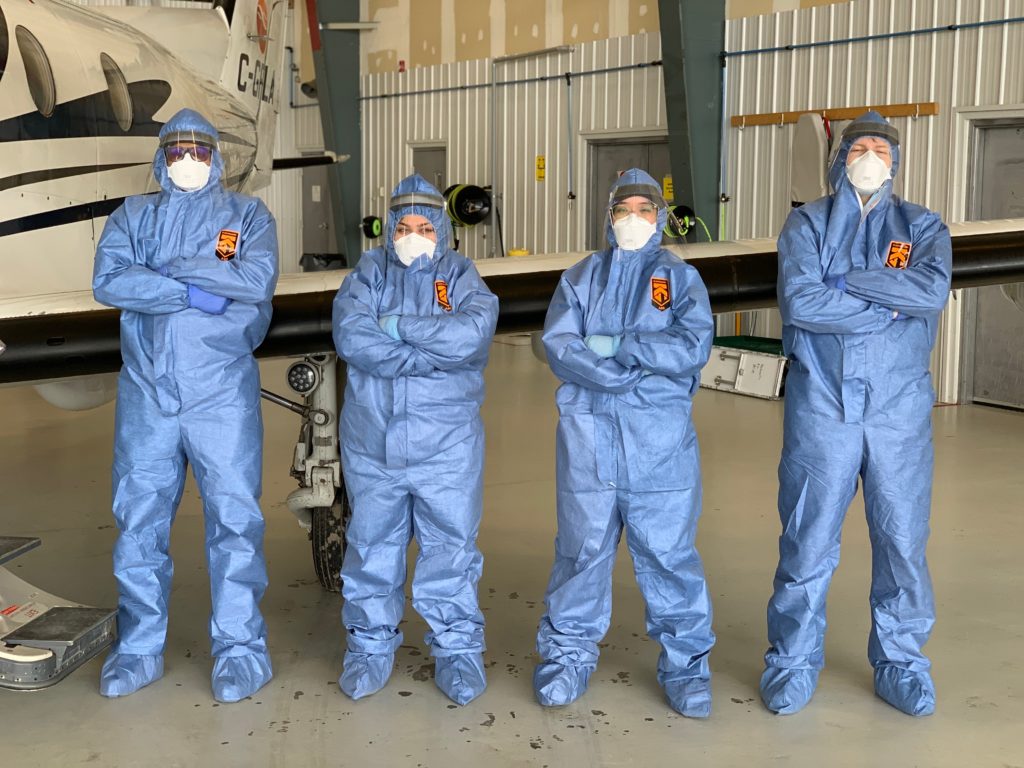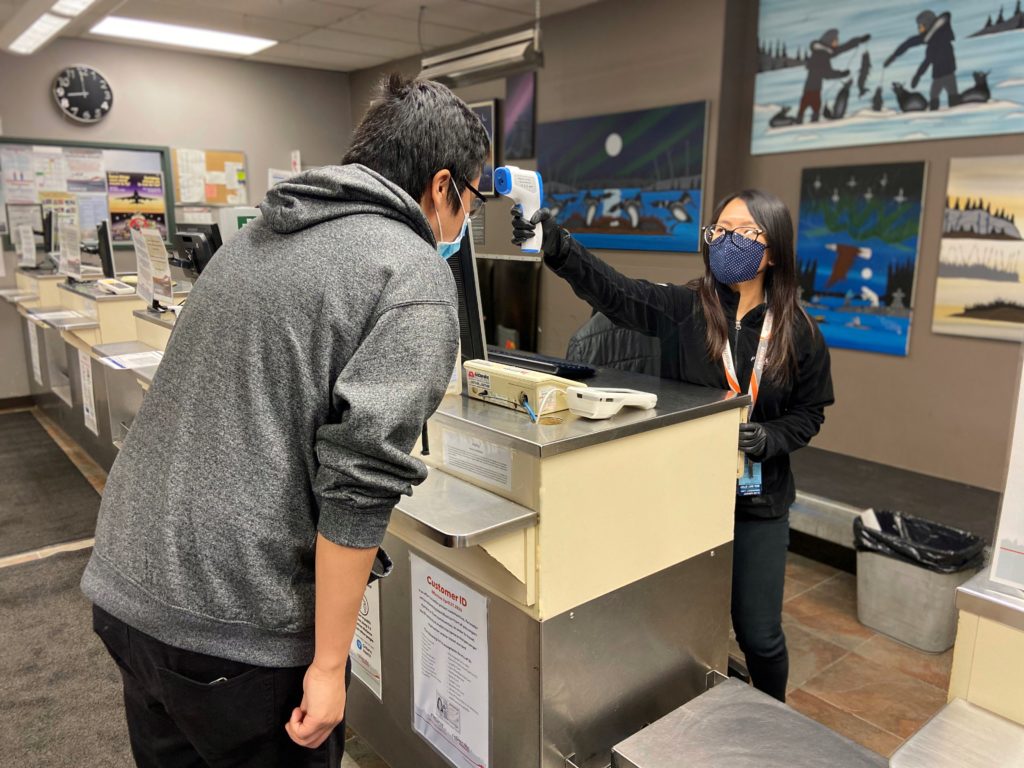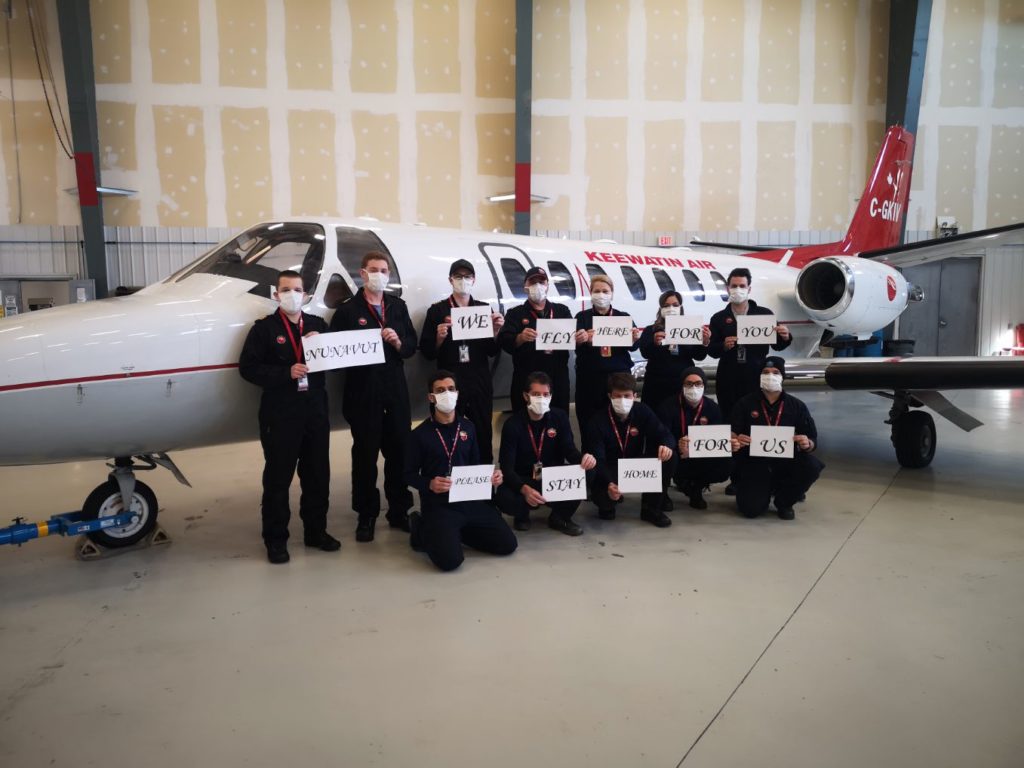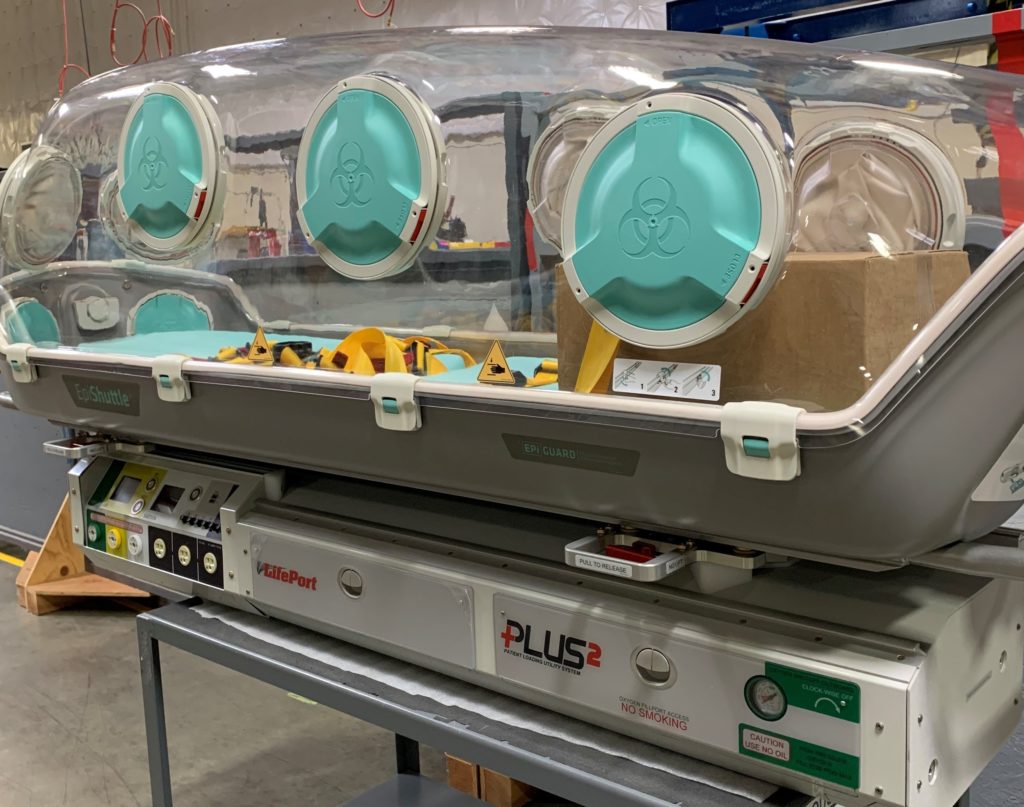Estimated reading time 9 minutes, 21 seconds.
For many of Canada’s most isolated northern communities, regular air service is an essential lifeline to food, fuel and critical supplies. Pandemic or not, they rely on aircraft for their very survival.

It’s a responsibility that Exchange Income Corporation (EIC) doesn’t take lightly. As a publicly-traded company with a diverse portfolio of holdings, EIC owns a total of eight air operators located across the country, including Perimeter Aviation, Calm Air, Custom Helicopters, Keewatin Air, Moncton Flight College, PAL Airlines, and partner operators Wasaya Airlines and Air Borealis.
In total, EIC flies more than 200 aircraft, many of them serving about 50 of those remote fly-in communities scattered across the Canadian North. The company’s combined fleet ranges in size from a Diamond DA20 single-engine training aircraft to a twin-engine ATR 72 turboprop.
While the COVID-19 pandemic and the resulting travel restrictions have reduced the frequency of EIC air operators’ flights, they continue to serve all of their regulator destinations.
“With our moral obligations to the markets we serve, stopping flying wasn’t even on the table,” said David White, EIC’s executive vice-president of Aviation. “Without us there would be no access.”
But that doesn’t mean it’s business as usual.
Instead of daily service to remote destinations such as Lac Brochet in northern Manitoba, EIC operators have cut back to several flights a week, moving essential goods and personnel.

They are working with local First Nations, government and public health authorities to ensure the wellbeing and safety of their staff as well as the communities they serve, which have limited healthcare resources.
White said the company’s coordinated response to the pandemic is the result of its “strong, independent companies” coming together to develop a correlated plan that focuses on best practices and regular communication. Thrice-weekly conference calls between White and the presidents of all EIC subsidiaries allow the group to share experiences and brush up on the latest recommendations from authorities.
Before each province and territory had introduced their own policies, EIC had already implemented early guidance from the World Health Organization (WHO), including passenger health checks. The group’s medevac operators contributed expertise that led to the implementation of temperature screening and social distancing inside terminals. EIC also adopted socially distanced boarding procedures and, where practical, distanced seating on its aircraft. Commissary is no longer available to limit interaction, and masks are provided for passengers in compliance with government mandates, said White.
In addition to deep cleaning its aircraft, EIC operators fog them with a product called Vital Oxide, a commercial and residential disinfectant approved for use against the coronavirus variant that causes COVID-19.

“One of EIC’s manufacturing companies sourced us seven 45-gallon drums so we could supply our operators early on,” said White. “It can be applied as a fog, mist, spray, with electrostatic foggers – it’s very adaptable.” After Vital Oxide treatment, aircraft are sealed with a sticker advising they have been sanitized and are ready for the next flight.
EIC also leveraged its collective strength to order personal protective equipment (PPE) for its air operators. Currently, masks and gloves are available to all crew and passengers. Protective gowns/suits are available but are currently used mostly during medevac flights. Another EIC member company, Ben Machine Products, is manufacturing protective face shields that can be disinfected and reused.
“The learning curve was steep, but having said that, our operators were on the band wagon early on,” said White. “The advantage of having multiple companies is that when you can reach out to eight presidents or eight directors of flight and maintenance ops as well as their medical personnel, we had access to information very early on. Putting the operators together softened that learning curve.”
Although he believes EIC has been thorough in response to COVID-19, White pointed out that no one knows what the new normal will entail.
“So, all we can do is constantly plan and react to the new challenges. The ability to keep the aircraft and the workers and customers safe is key to this. We always default to an abundance of caution.”
Preventing the spread
EIC operator Calm Air, which serves several remote destinations in Nunavut, has been working closely with the territory to ensure strong COVID-19 controls.
To date, Nunavut has one confirmed case of the virus in the Baffin Region. On March 24, it implemented a travel ban that allows only residents and essential workers to fly into the territory. Before travelling, those people are required to undergo a mandatory self-isolation period in either Ottawa, Winnipeg, Edmonton or Yellowknife.
White said Calm Air, an EIC air operator that serves the Kivalliq Region of Nunavut, introduced applicable screening processes early on, and continues to provide air travel back to the territory for those who have successfully passed quarantine without exhibiting any symptoms.
“We’re in a world now where aviation safety and health safety must go hand in hand,” he pointed out. “In our case, where our clients are remote and northern communities, their faith in you that you’re doing the right thing is paramount. That’s the key piece in all of this that makes EIC operators very unique. We have close personal relationships with the markets we serve.”
To date EIC operators providing medevac services have not transported any confirmed COVID-19 cases. However, the company has ordered several single-patient isolation pods for planned placement on both aircraft and helicopters. Member company PAL Aerospace designed “compartment isolation blankets” – drape-like devices that can be used to isolate groups of passengers if requested- for use on the company’s larger turboprops.
“If we’re doing a full medevac, everyone gowns up to the Nth degree with additional procedures when they land to make sure there is no cross-contamination,” explained White. “Cargo ops also take precautions with different protocol requirements.”

EIC is also evaluating additional PPE options for its workforce, working to keep abreast of the latest requirements.
“The pandemic will not have a hard stop,” added White. “It will all be about adapting to new norms, whatever they look like. We are responsible and thinking outside the box to find solutions for those remote communities we serve.”
Caution rules the day
White said EIC made a point of communicating early and often with its front line staff.
“We wanted to communicate that we were doing the right things in terms of cleaning, sanitization and PPE, and making available screening, enhanced boarding and protective equipment.”
By thinking ahead, the company has been able to make things easier for its staff. A recent group of pilots who travelled to mandatory simulator training in Montreal were flown in on a chartered EIC operator-owned aircraft and provided accommodation with kitchen facilities and dedicated transportation, all in an effort to limit their exposure.
At Moncton Flight College (MFC), which resumed very limited flying lessons on April 25, White said a return to normal operations will entail a controlled, phased-in approach. All flight school aircraft are being cleaned and decontaminated in the same way as the rest of the EIC fleet.
“Again, we’ll be making decisions with the support of staff and customers,” he said. “It won’t be a light switch. You start with an abundance of caution and put your people first – that’s just responsible business.”








